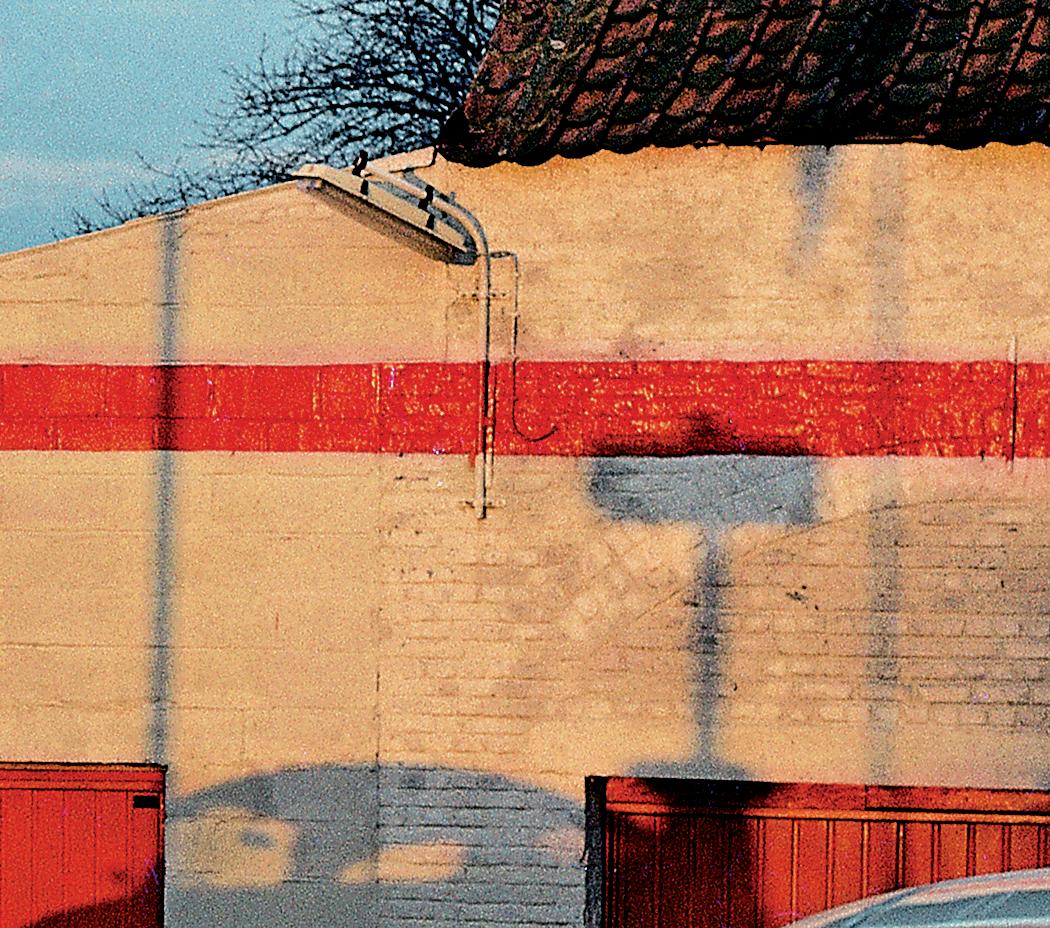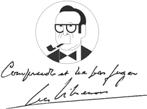Maigret’s Secret
Translated by david watson
PENGUIN BOOKS
UK | USA | Canada | Ireland | Australia
India | New Zealand | South Africa
Penguin Classics is part of the Penguin Random House group of companies whose addresses can be found at global.penguinrandomhouse.com.
Penguin Random House UK
One Embassy Gardens, 8 Viaduct Gardens, London SW 11 7 BW penguin.co.uk
First published in French as Une confi dence de Maigret by Presses de la Cité 1959
This translation fi rst published 2018
Published in Penguin Classics 2025 001
Copyright © Georges Simenon Limited, 1959
Translation copyright © David Watson, 2018
GEORGES SIMENON and ® , all rights reserved
MAIGRET ® Georges Simenon Limited, all rights reserved original design by Maria Picassó i Piquer
All rights reserved
The moral rights of the author and translator have been asserted
Penguin Random House values and supports copyright.
Copyright fuels creativity, encourages diverse voices, promotes freedom of expression and supports a vibrant culture. Thank you for purchasing an authorized edition of this book and for respecting intellectual property laws by not reproducing, scanning or distributing any part of it by any means without permission. You are supporting authors and enabling Penguin Random House to continue to publish books for everyone. No part of this book may be used or reproduced in any manner for the purpose of training artificial intelligence technologies or systems. In accordance with Article 4(3) of the DSM Directive 2019/790, Penguin Random House expressly reserves this work from the text and data mining exception.
Typeset by Palimpsest Book Production Limited, Falkirk, Stirlingshire
Printed and bound in Great Britain by Clays Ltd, Elcograf S.p.A.
The authorized representative in the EEA is Penguin Random House Ireland, Morrison Chambers, 32 Nassau Street, Dublin D 02 YH 68
A CIP catalogue record for this book is available from the British Library
ISBN : 978–0–241–30387–0
Penguin Random House is committed to a sustainable future for our business, our readers and our planet. This book is made from Forest Stewardship Council® certified paper.
1. Madame Pardon’s Rice Pudding 1
2. The Geraniums in Rue Caulaincourt 20
3. The Concierge Who Wanted to Get Her Picture in the Paper 40
4. What Adrien Josset Did Next That Night 59
5. Doctor Liorant’s Obstinate Silence 79
6. The Old Insomniac 100
7. Monsieur Jules and the Chairwoman 120
8. Madame Maigret’s Coq au Vin 142
1. Madame Pardon’s
Rice Pudding
The maid had just placed the rice pudding in the middle of the round table, and Maigret had to make an effort to look both surprised and delighted as a blushing Madame Pardon cast him a mischievous glance.
It was their umpteenth rice pudding in the four years that the Maigrets had got into the habit of dining at the Pardons’ and that the latter had in turn been dining with them a fortnight later at Boulevard Richard-Lenoir, where it was Madame Maigret’s turn to lay on a spread.
In the fifth or sixth month of this arrangement, Madame Pardon had served a rice pudding. Maigret had had second and third helpings, saying that the dish reminded him of his childhood and that he hadn’t tasted better in the last forty years, which was true.
Since then, every dinner at the Pardons’ new apartment in Boulevard Voltaire had been finished off by a helping of the same creamy dessert, which seemed to chime with the cosy, relaxed, slightly dull nature of these occasions.
Neither Maigret nor his wife had family in Paris and they had little experience of regular weekly get-togethers with sisters or sisters-in-law, so the dinners with the Pardons reminded them of visits to see aunts and uncles when they were little.
This evening, the Pardons’ daughter, Alice, whom they
had known since she was at school and who had now been married for a year, had joined them along with her husband. She was seven months pregnant and had the ‘mask’, particularly the red blotches on her nose and under her eyes, and her young husband was paying special attention to what she ate.
Maigret was about to comment once again on how delicious his hostess’s rice pudding was when the telephone rang for the third time since they had sat down to eat. They were used to it by now. It had become a sort of joke at the start of the meal to wonder whether the doctor would make it through to dessert without being called by one of his patients.
The telephone sat on a console table surmounted by a mirror. Pardon, with his napkin still in his hand, picked up the receiver.
‘Hello! Doctor Pardon here.’
They were watching him in silence and suddenly heard a piercing voice that caused the phone to vibrate. Apart from the doctor, none of them could make out what was being said. It was just a stream of noise, as when you play a record at too fast a speed.
Maigret, however, gave a frown, because he saw his friend’s expression turn serious and a worried look pass over his face.
‘Yes . . . I’m listening, Madame Kruger . . . Yes . . .’
The woman at the other end of the line didn’t need any encouragement to talk. Her words tumbled over each other and, for those who didn’t have the receiver next to their ear, formed an incomprehensible but nonetheless pathetic litany.
And there was a drama playing itself out on Pardon’s face, mute but expressive. The local doctor, who just a few moments earlier had been smiling, relaxed, joining in the fun of the rice pudding, now seemed a long way from the tranquil bourgeois dining room.
‘I understand, Madame Kruger . . . I know, yes . . . If it would be of help, I could come round and . . .’
Madame Pardon looked at the Maigrets as if to say:
‘Here we go again! Another dinner we’ll have to finish without him . . .’
She was wrong. The voice was still booming out. The doctor was becoming more and more uneasy.
‘Yes . . . Of course . . . Try to put them to bed . . .’
They could tell he was feeling despondent, powerless.
‘I know . . . I know . . . But I can’t do any more than you have . . .’
No one was eating. No one said a word.
‘You realize that, if this goes on, it will be you . . .’
He sighed, wiped his brow with his hand. He was fortyfive and almost totally bald.
His voice weary, he finally gave another sigh, as if buckling under irresistible pressure:
‘Give him one of the pink pills . . . No . . . Just one! . . . Give it half an hour, and if it has had no effect . . .’
Everyone could sense the feeling of relief at the other end of the phone.
‘I’ll be at home all evening . . . Goodbye, Madame Kruger . . .’
He hung up and came back to the table. They avoided asking him any questions. It took them several minutes
to get the conversation flowing again. Pardon remained distracted. The evening followed its usual course. They left the table to have their coffee in the living room, where the table was covered with magazines, as this was the room where his patients waited during surgery hours.
The two windows were open. It was May. The evening was warm, and in spite of the buses and cars there was a hint of spring in the Parisian air. Families from the neighbourhood strolled along Boulevard Voltaire, and there were two men in shirt-sleeves sitting on the café terrace across the road.
When the coffee had been poured, the women picked up their knitting and sat in their usual corner. Pardon and Maigret were seated next to one of the windows, while Alice’s young husband, unsure about which group to join, ended up sitting next to his wife.
They had already decided that Madame Maigret would be the godmother, and she was knitting a little jacket for the baby.
Pardon lit a cigar. Maigret filled his pipe. They felt no great compulsion to speak, so they sat there in silence for quite a long time, while listening to the murmur of their wives’ conversation.
Finally the doctor muttered, as if to himself:
‘Another one of those evenings when I wished I did a different job!’
Maigret didn’t press the point or push him into breaking confidences. He liked Pardon a lot. He considered him to be a man, in the fullest sense of the word.
Pardon glanced furtively at his watch.
‘It could go on for three or four hours, but she could ring at any moment . . .’
He continued, without providing any details, leaving Maigret to read between the lines:
‘A small-time tailor, a Polish Jew, who set up above a herbalist’s shop in Rue Popincourt . . . Five children, the eldest nine, and his wife is expecting a sixth . . .’
He gave his daughter’s belly an involuntary look when he said this.
‘Medical science can do nothing more for him, but five weeks on he is still not dead . . . I’ve done everything I can to convince him to go into hospital . . . But no sooner do I say the word than he falls into a sort of trance, summons his family to his bedside, cries, groans and begs them not to let anyone take him away against his will . . .’
Pardon was smoking his only cigar of the day without enjoyment.
‘They live in two rooms . . . The kids crying all the time . . . His wife’s at the end of her tether . . . She’s the one I should be tending to, but as long as this goes on I can do nothing . . . I went over there before dinner . . . I gave him an injection and his wife a sedative . . . It isn’t having an effect any more . . . While we were eating, he started groaning again, then howling in pain, and his wife, her strength all used up . . .’
Maigret drew on his pipe and muttered:
‘I think I understand.’
‘Legally, medically, I don’t have the right to prescribe him another dose . . . That wasn’t the first such telephone call I’ve received . . . Until now, I’ve managed to convince her . . .’
He looked at the inspector as if seeking his indulgence.
‘Put yourself in my place . . .’
He glanced at his watch again. How much longer would the sick man last out?
The evening was mild, with a certain languor in the air. The murmur of the women’s conversation and the rhythmic clack of their needles carried on in the corner of the living room.
Maigret said in a hesitant voice:
‘It’s not the same, of course . . . but I too have often wished I’d chosen a different profession . . .’
It wasn’t a proper, joined-up conversation. It was full of gaps, silences and slow puffs of smoke rising from the inspector’s pipe.
‘For a while now the police haven’t had the powers we enjoyed before, and, by extension, the same responsibilities . . .’
He was thinking out loud. He felt Pardon was a close friend; the feeling was mutual.
‘Over the course of my career I have seen our powers gradually diminished in favour of the magistrates. I don’t know if that is a good thing or a bad thing. In any case, it’s never been our role to pass judgement. It’s up to the courts and the juries to decide if a man is guilty or not and to what extent he should be held responsible . . .’
He took it upon himself to do the talking because he sensed that his friend was tense, that his mind was elsewhere, in Rue Popincourt, in the two-room apartment where the Polish tailor was dying.
‘Even with the law as it is now, with us as instruments of the prosecutor’s office, of the examining magistrate, there still comes a moment when we have to make a decision which will have serious consequences . . . Because, at the end of the day, it is our investigations, the evidence we have gathered, that the magistrates, then the juries, will rely on to form their opinion . . .
‘The simple fact of considering a man a suspect, of bringing him into Quai des Orfèvres, of questioning his family, friends, concierge and neighbours about him, can potentially affect the rest of his life . . .’
It was Pardon’s turn to murmur:
‘I understand.’
‘Is such- and- such a person capable of committing a crime? Whatever happens, it is almost always we who ask ourselves the question first. Material evidence is often non-existent, or unconvincing . . .’
The phone rang. Pardon seemed almost afraid to answer, and it was his daughter who picked up the receiver . . .
‘Yes, monsieur . . . No, monsieur . . . You have a wrong number . . .’
She explained with a smile:
‘Bal des Vertus again . . .’
A dance hall on Rue du Chemin-Vert, whose phone number was very similar to the Pardons’.
Maigret continued, speaking quietly:
‘So this apparently normal individual you have before you, was he capable of killing someone or not? Do you see what I’m getting at, Pardon? I’m saying it’s not about
deciding if he is guilty or not. That’s not the business of the Police Judiciaire. But we do have to ask ourselves if it is possible that . . . Isn’t that a form of judging? I hate that. And if I’d thought about that when I first joined the police, I’m not sure I would have . . .’
A longer silence. He emptied his pipe and took another one from his pocket, which he slowly filled, seeming to caress the briar.
‘I remember one case, not so long ago . . . Did you follow the Josset affair?’
‘The name rings a bell.’
‘There was a lot in the papers about it, but the true story, insofar as there is a true story, was never told.’
It was very unusual for him to talk about a case he had been involved in. Occasionally, at Quai des Orfèvres, among colleagues, some famous case or some difficult investigation might be mentioned, but it was always a passing allusion.
‘I recall Josset at the end of his first interrogation, because that’s when I had to ask the question . . . I could show you the transcript, so that you can form your own opinion. Only, you would not have had the man himself in front of you for two hours. You wouldn’t have heard his voice, seen his facial expressions . . .’
It was at Quai des Orfèvres, in Maigret’s office, a Tuesday – he remembered the day – around three o’clock in the afternoon. And it was spring then too – the end of April or the beginning of May.
When he came into work that morning Maigret knew
nothing of the affair, and he wasn’t alerted to it until around ten o’clock, firstly by the chief inspector at Auteuil and subsequently by Examining Magistrate Coméliau.
There was some confusion that day. The inspector from Auteuil claimed that he had informed the Police Judiciaire in the early hours of the morning, but for some reason the message did not seem to have reached its destination.
So it was nearly eleven o’clock before Maigret took a car to Rue Lopert, two or three hundred metres from the church at Auteuil, and found that he was the last to arrive. The reporters and photographers were already there, along with a hundred or so curious onlookers, being held back by uniformed policemen. The men from the prosecutor’s office were already on the scene, and five minutes later Criminal Records showed up.
At 12.10 Maigret showed into his office one Adrien Josset, a handsome, still quite lean forty-year-old, who cut an elegant figure despite his unshaven, crumpled appearance.
‘Come in, please . . . Take a seat.’
He opened the door of the inspectors’ room and summoned young Lapointe.
‘Bring a pad and pencil . . .’
The office was bathed in sunlight, and the noises of Paris could be heard through the open window. Lapointe understood that he was required to take a shorthand record of the interrogation and sat down at the corner of the table. Maigret filled his pipe and watched a convoy of boats going up the Seine and a man in a barge allowing his vessel to drift.
‘Forgive me, Monsieur Josset, but I am obliged to record



















